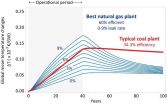(Press-News.org) Nearly half of all children in the United States are exposed to at least one social or family experience that can lead to traumatic stress and impact their healthy development - be it having their parents divorce, a parent die or living with someone who abuses alcohol or drugs - increasing the risk of negative long-term health consequences or of falling behind in school, suggests new research led by the Johns Hopkins Bloomberg School of Public Health.
The study reports on new data showing the magnitude of these adverse experiences in the child population in the U.S., while also suggesting that training parents, providers and communities to help children with trauma cope and build even basic aspects of resilience may soften the blows and lead to later success, despite the obstacles.
The findings are published in the December issue of the journal Health Affairs.
"This study tells us that adverse childhood experiences are common among U.S. children and, as demonstrated in adult studies, have lifelong impacts that begin early in life," says study leader Christina D. Bethell, PhD, MPH, MBA, a professor in the Department of Population, Family and Reproductive Health at the Johns Hopkins Bloomberg School of Public Health.
For the study, Bethell and her colleagues analyzed data from the 2011-12 National Survey of Children's Health, a survey of parents of 95,677 children under 17 from throughout the United States. The survey included questions about nine adverse childhood experiences as reported by parents: extreme economic hardship, parental divorce/separation, lived with someone with a drug or alcohol problem, witness or victim of neighborhood violence, lived with someone who was mentally ill or suicidal, witnessed domestic violence, parent served time in jail, treated or judged unfairly due to race/ethnicity and the death of a parent. The survey includes myriad data on family and neighborhood environments and parental well-being in addition to children's schooling and medical care, and contains some data about child resilience.
The study found that more than 22 percent of children represented in the survey had two or more of these traumatic childhood experiences. Broken down by state, Utah had the lowest number of children experiencing two or more traumatic experiences (16.3 percent) while Oklahoma had the highest (32.8 percent).
Researchers found that children with two or more adverse experiences were more than 2.5-times more likely to repeat a grade in school as well as be disengaged in school, compared to those without any traumatic experiences, and after adjusting for confounding factors such as race, income and health status. Children with these experiences were also much more likely to have a wide range of chronic health problems, including asthma, ADHD, Autism Spectrum Disorders, obesity and other health and risk factors. Children with adverse childhood experiences were also less likely than those without to live in a protective home environment and have mothers who were healthy.
The news isn't all bad: Among children with two or more adverse experiences who already have a chronic condition requiring regular doctor visits, those who had learned and showed even the one aspect of resilience evaluated in the study were 1.5-times more likely to be engaged in school and nearly half as likely to repeat a grade in school compared to those who had not learned this skill.
Also a positive: Children and families who received quality health care from a doctor who knows, listens to and ensures children's whole health care needs are met and coordinated did better than those who did not.
Bethell says that parents and children can be taught to recognize and reduce the biologic, emotional and psychological impact of traumatic stress, bounce back when faced with a challenge, and to develop a habit of hope instead of despair. Some of the most promising methods involve simple breathing techniques as well as so-called "trauma-informed" care and community approaches growing in popularity all across the country.
"Adverse childhood events don't automatically have to have long-term traumatic impacts for children," Bethell says. "To recognize trauma in children requires widespread awareness and skills-building among adults interacting with children at all levels. Efforts to support children, families and communities, so they can create a culture that supports safe, stable and nurturing relationships, hold great promise. Rapid innovation and studies documenting best methods and their impact are called for now. Supporting and teaching the adults in children's lives to learn to heal from trauma and learn resilience themselves may be the most effective strategy to implement immediately."
INFORMATION:
Voters are more willing to pay for a decreased risk of food-related illness than consumers, but female consumers are more willing to pay than male consumers, according to an international team of researchers.
"The question is, what would consumers prefer?" said Amit Sharma, associate professor of hospitality management and finance, Penn State. "Would they prefer a market-driven, or a policy-driven approach? Either of those two approaches could lead to some price increase. Improving quality costs money, and food safety is no different."
Sharma and colleagues wanted to ...
In the days shortly after giving birth, most mothers experience a period of increased calmness and decreased stress responses, but around 20% of mothers experience anxiety. Some women may become depressed, and around one in a thousand can develop psychosis. The latest evidence indicates that these distressing responses to motherhood are still poorly understood, but that animal research could provide valuable clues to their causes.
Writing in the British Journal of Pharmacology, Dr David Slattery and Dr Clara Perani highlight that anxiety, depression and psychosis during ...
Wind turbine developments have no effect on property values of nearby homes and farms, according to new research from the University of Guelph.
Published in a recent issue of the Canadian Journal of Agricultural Economics, the study is believed the first peer-reviewed study on this issue in Canada.
It was conducted by Richard Vyn, a professor in the Department of Food, Agricultural and Resource Economics, and Ryan McCullough, a former U of G graduate student and now a policy analyst for Health Canada.
They analyzed more than 7,000 home and farm sales in Melancthon ...
PORTICI, ITALY - As water becomes scarcer in arid and semiarid regions across the globe, the floriculture industry is looking for ways to reduce water usage and produce ornamental plants more efficiently. Chiara Cirillo and members of an Italian research team coordinated by Professor Stefania De Pascale, say that understanding flowering plants' response to water management is critical for optimizing the production of high-quality potted ornamentals. "Water-saving irrigation management strategies are among the options available to horticultural growers to reduce water consumption ...
DURHAM, N.C. -- By identifying the most efficient fishing practices and behaviors, a new model developed by economists at Duke University and the University of Connecticut could help fishermen land larger paychecks while reducing the risk of fishery depletion.
"We're not talking about a trivial improvement. In some cases, we found that identifying the most efficient practices led to a 20 percent annual increase in total revenues if the fishery is managed differently," said Martin D. Smith, professor of environmental economics at Duke's Nicholas School of the Environment.
"Under ...
The same research team that developed the first laser based on a living cell has shown that use of fluorescent proteins in a solid form rather than in solution greatly increases the intensity of light produced, an accomplishment that takes advantage of natural protein structures surrounding the light-emitting portions of the protein molecules. The findings from investigators Seok Hyun Yun, PhD, of the Wellman Center for Photomedicine at Massachusetts General Hospital and Malte Gather, PhD, of the University of St. Andrews in the U.K. appear in the online journal Nature ...
CHARLOTTESVILLE, Va. -- The majority of streams in the Chesapeake Bay region are warming, and that increase appears to be driven largely by rising air temperatures. These findings are based on new U.S. Geological Survey research published in the journal Climatic Change.
Researchers found an overall warming trend in air temperature of 0.023 C (0.041 F) per year, and in water temperature of 0.028 C (0.050 F) per year over 51 years. This means that air temperature has risen 1.1 C (1.98 F), and water temperature has risen 1.4 C (2.52 F) between 1960 and 2010 in the Chesapeake ...
You don't have to be a jerk to come up with fresh and original ideas, but sometimes being disagreeable is just what's needed to sell your brainchild successfully to others. However, difficult or irritating people should be aware of the social context in which they are presenting their ideas. A pushy strategy will not always be equally successful, warn Samuel Hunter of Pennsylvania State University and Lily Cushenbery of Stony Brook University in the US, in an article in Springer's Journal of Business and Psychology.
People are often labelled as jerks if they are disagreeable ...
Washington, D.C.-- Natural gas power plants produce substantial amounts of gases that lead to global warming. Replacing old coal-fired power plants with new natural gas plants could cause climate damage to increase over the next decades, unless their methane leakage rates are very low and the new power plants are very efficient.
These are the principal findings of new research from Carnegie's Ken Caldeira and Xiaochun Zhang, and Nathan Myhrvold of Intellectual Ventures that compares the temperature increases caused by different kinds of coal and natural gas power plants. ...
Washington, DC (December 8, 2014) - Scrolling through the comments section on a news site is like seeing a verbal war before your eyes. Internet trolls flourish in an anonymous world, so much so that sites like Reuters and Popular Science have done away with the comment sections altogether. But there has to be a better way to let the audience engage in a civil manner. A recent study published in the Journal of Computer-Mediated Communication by researchers at the University of Texas, Purdue University, and University of Wyoming, found that having a journalist engage with ...



